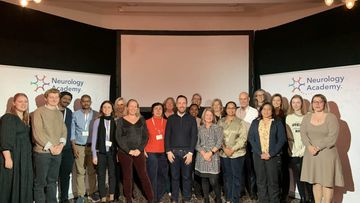Stress: today’s health epidemic?
There is more evidence than ever to suggest that many disease-related risk factors are modifiable – or can be changed – to improve outcomes, and a number of them are lifestyle related. However, stress is fast becoming one of the top lifestyle risks for a whole host of conditions.
From triggering relapse in multiple sclerosis (MS) (Mohr: 2004) and flare ups in rheumatoid arthritis (RA) (Hassett: 2010), to affecting insulin resistance (Li: 2013), stress is being cited as an exacerbator of chronic conditions. Stress can affect our sleep patterns (Kuem: 2012), digestive system (Oritz: 2018), cognition (Yuen: 2013), and immune function (Morey: 2015), all of which can impact our overall health.
Increasingly, inflammation is being found as a contributor to, or causal element of, a number of long-term conditions (CITE) and whilst the pathway between stress and inflammation is not clear, that stress causes inflammation is (Yun-Zi: 2017)
Mild cognitive impairment can be increased by a perceived high level of chronic stress (Katz: 2015). It has also been found to change the very structure of the brain and predispose it to mental illness (Kaufer: 2014), as well as to cause it to shrink and atrophy (Ansell: 2012; Bremner: 2012)
How can we support people living with a long-term neurological condition?
Look at stress patterns – is there a particular pattern to relapses, flare ups, or a worsening of symptoms at stressful times? Helping people to recognize their own patterns can be a good step in helping them to break those patterns.
- For those who are finding that stress is causing anxiety or is affecting their sleep, simple things like making a list, keeping a gratitude journal or actively being grateful (Emmons: 2003), or journaling (Smyth: 2018) have all been found to dissipate stress and create a more calm state of mind before bed.
- Practicing breathing techniques like pranayama or meditation (Sinha: 2013), or calm, breath-orientated movement like tai chi or yoga can also be beneficial for some as any movement matched with breathing can activate the parasympathetic ‘rest and digest’ function in the autonomic nervous system (ANS) (Chin: 2019).
- Taking some time away from smartphones or tablets as a regular practice in life can be a helpful long-term strategy towards decreasing stress. The constant ‘on’ of our technological devices can leave little space for ‘down time’ or ‘switch off time’. Little changes like having a device free hour or two per day, or a full day per week could reduce stress in some people (Blankson: 2019)
Additional useful resources:
- Dr Mithu Storoni, ‘Stress-proof: the ultimate guide to living a stress-free life’ (2019)
- Dr Chatterjee Feel Better, Live More podcast with Dr Storoni ‘Becoming stress-proof’
Related articles
Encouraging excellence, developing leaders, inspiring change
MS Academy was established five years ago and in that time has accomplished a huge amount. The six different levels of specialist MS training are dedicated to case-based learning and practical application of cutting edge research. Home to national programme Raising the Bar and the fantastic workstream content it is producing, this is an exciting Academy to belong to.


